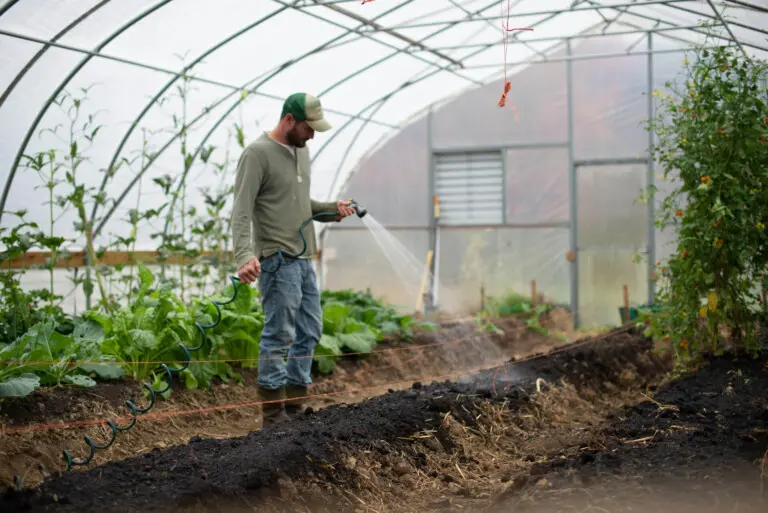Bridging the Gap: Improving market access for small-scale farmers. By Michael Oke

Bridging the Gap: Improving market access for small-scale farmers

Farmers face significant challenges in accessing inputs and marketing their produce, with many agricultural products spoiling before reaching the market.
These difficulties stem from neglected infrastructure, particularly poor road networks linking farms to markets, and exorbitant transportation costs factors often overlooked during production planning. Consequently, farmers are forced to rely on middlemen or wholesalers, further eroding their profit margins.
In many developing countries, inefficient agricultural transportation systems severely hamper sectoral growth.

The lack of investment in transport infrastructure and other essential support systems not only stifles productivity but also discourages young people from considering agriculture as a viable career.
The impact of inadequate agricultural infrastructure extends beyond individual farmers, with broader implications for food security and national economic growth.
When farmers cannot efficiently transport their produce to markets, food supply chains are disrupted, causing shortages in urban centres and price hikes that burden consumers.

Moreover, the financial losses incurred by farmers due to spoilage and reduced earnings discourage reinvestment in their farms, perpetuating a cycle of low productivity and poverty.
The absence of cold storage facilities and processing centres compounds these challenges. Perishable goods such as fruits, vegetables, and dairy products are especially vulnerable, leading to substantial post-harvest losses.
Governments and private stakeholders must prioritise investments in rural infrastructure, including storage hubs and processing plants, to minimise waste and enhance value addition.
Such investments not only improve farmers’ earnings but also strengthen the overall agricultural value chain.
Furthermore, innovative solutions such as digital platforms for direct farm-to-market connections and decentralised transportation cooperatives could help farmers bypass traditional bottlenecks.
With appropriate policy support, these initiatives could empower farmers to retain a larger share of their profits while fostering competition that benefits consumers.
Such advancements would also make agriculture more appealing to the youth, ensuring a sustainable and dynamic future for the sector.
Despite large areas under cultivation, agricultural productivity remains low. Fragmented and poorly coordinated farming practices exacerbate this issue.
Small-scale farmers continue to purchase seeds and inputs directly from open markets, as the distribution of seedlings and essential inputs has become a relic of the past.
This disorganised supply chain makes farming cumbersome and unproductive.
The inconsistency in agricultural produce availability reduces profits and deters farmers from maximising their potential.
Farmers often prioritise crop cultivation and higher yields over developing value chains. Limited opportunities and a lack of awareness about the benefits of value chain development discourage them from investing in marketing or enhancing their produce.
This narrow focus leaves farmers vulnerable to exploitation by middlemen, who inflate prices for consumers while offering low prices to the farmers.
Low technological adoption further hinders progress. Farmers lack knowledge of sorting, grading, and pricing their produce to attract premium markets. Seasonal changes exacerbate these issues, leaving farmers with unsold produce and minimal profits.
Policy intervention is essential to addressing these challenges. Policymakers must scale and strengthen market systems to facilitate the distribution of subsidised inputs.
Governments should establish strong linkages between farms and markets, improve rural infrastructure, and develop agricultural transportation systems in farming communities.
Additionally, designated funds should be allocated to empower farmers and support agricultural product marketing, enabling a more sustainable and profitable agricultural sector.
Michael Adedotun Oke,
Project Facilitator, Talent Upgrade Global Concept, Michael Adedotun Oke Foundation, Plot 232 Kaida Road, Old Kutunku, Gwagwalada, Abuja, Nigeria
maof2020@gmail.com
+23408027142077




